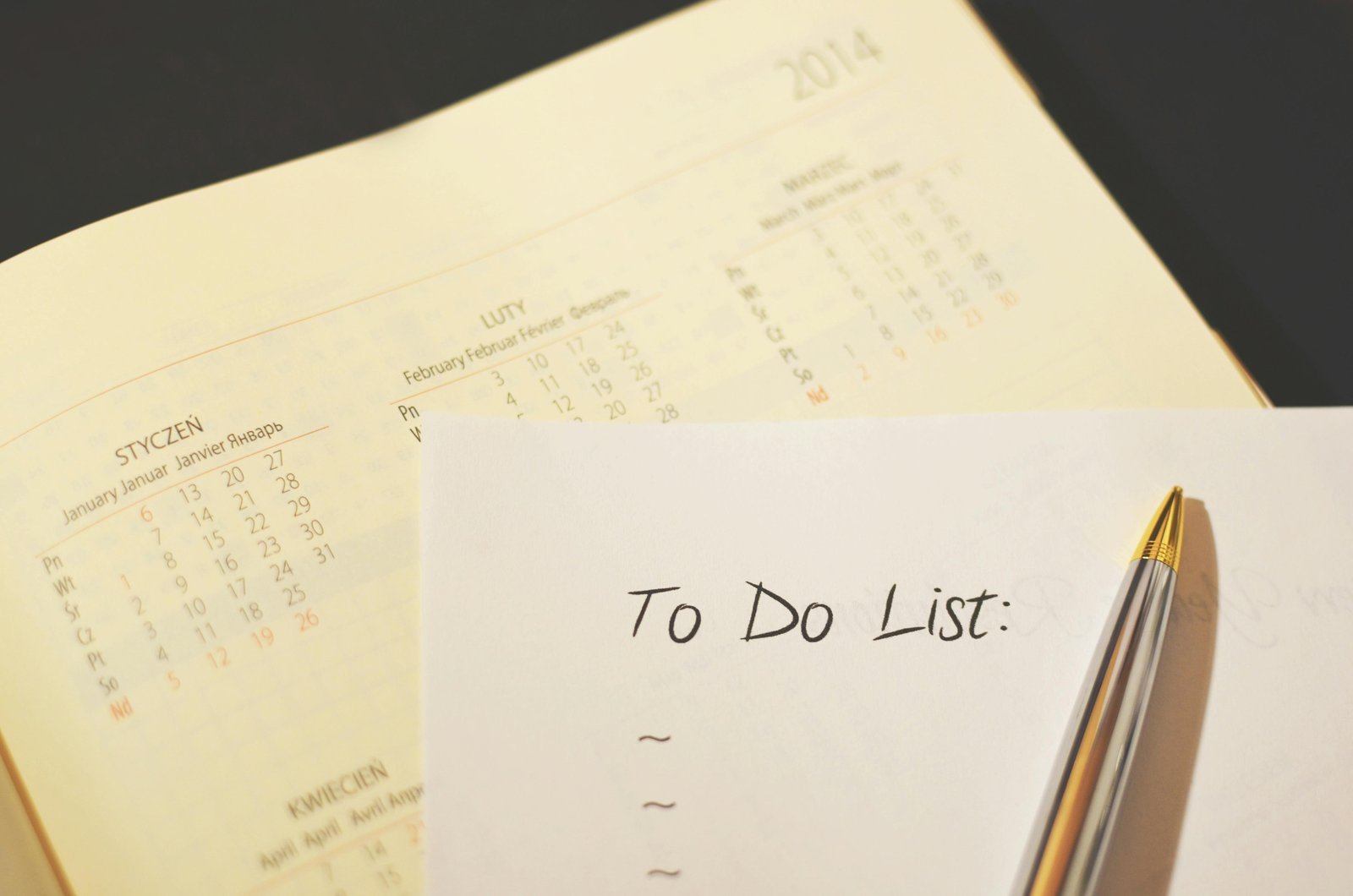Stress soars higher than your bank balance. Stress is an uninvited guest who just refuses to leave without proper planning and effective execution.
43 percent of Americans were more anxious in 2024 than a year before. This was reported by the American Psychiatric Association (APA)’s 2024 report. Among different health challenges, stress is surfacing as the most frequently occurring and critical health issue with long-term and serious consequences.
As life brings forth new challenges and expectations every day, you can hardly avoid getting anxious and stressed. One of the primary reasons for penning this down is to explain how time management is related to stress management, why we often fail in managing time, how such failures build up stress, and what measures you can take to enhance your time management skills. We will also look at some of the age-old strategies for managing our time and de-stressing along the way.
Most importantly, time management is a skill that you too can master.

Understanding Stress and Its Impact
The bad news is that you cannot run away from stress. As most of us continue to live in a state of fight or flight, stress has become an indispensable part of it. That's really not good for our overall health.
The good news is that you can reduce stress, and minimize it to the extent of non-existence. The knowledge of how it impacts your body and appropriate coping strategies can turn the tide in your favor improving your well-being.
What is Stress?
We have been talking about it since the very beginning. We all know about stress yet it would be good to clarify what it is before we get to the core matter of this piece of content.
When the body reacts to oppressing situations (it could be internal or external, or both) and loses its ability to cope with it, then the individual is said to be under stress. This happens when an individual perceives a situation as demanding or threatening; it triggers a series of physical, emotional, or mental reactions. Work, relationships, financial issues, or major life changes are a few common causes that may lead to stress. The way you react to stress, however, makes a whole lot of difference to your overall mental and physical well-being.

Signs That Indicate Stress
Stress is not always overt, but with proper knowledge, you can identify signs that you may be carrying too much load. Sometimes stresses come from obvious sources while at other times even the smallest regular unpleasant things may trigger stress. For instance, work, school or studies, family, and friends can weigh on your mind and body.
Seek out these signs:
Cognitive symptoms: Inability to concentrate, worry, anxiousness, inability to recall.
Emotional symptoms: Irritability, annoyance, fear, and fluctuating mood.
Physiological symptoms: Hypertension, headache, sweaty/wet palms, tight muscles and stiff neck, weight gain/loss, common cold/infection, teeth grinding, gastrointestinal problems, menstrual issues, and lower sex drive.
Difference Between Stress and Anxiety
Often while talking about stress, we tend to confuse it with anxiety or assume both to be the same. They are similar but aren’t the same; ‘stress’ is the default response to external pressures or challenges, when perceived as a threat. Stress is usually temporary. Whereas, anxiety is the On the other hand, anxiety is continuous worrying or fear, without any particular stressor. If left untreated, it can intensify and disturb regular life.
How Does Stress Impact Mental Health?
Prolonged stress has detrimental effects on one’s psyche that may jeopardize the personal, professional, and social lives of anyone who gets affected by it. Stress can lead to irritability, aggression, feeling one has lost control, sleeplessness, frustration or exhaustion, depression, feeling the urge to cry without any immediate reason, facing difficulty in concentrating
Other problems develop with prolonged stress like depression, anxiety, or burnout. One of the most effective ways to counter such fallouts is effective stress management techniques. It also improves your quality of life and mental health.

How Does Stress Affect Physical Health?
An individual undergoing stress may be affected by either short-term or long-term effects of stress or both. Under stress conditions, the human body releases cortisol and adrenaline (stress hormones) that trigger a “fight or flight” reaction in individuals.
Prolonged stress has been found to be a dominating reason behind weak immunity, exposing the body to infections and diseases. Stress also causes hypertension, insomnia, fatigue, issues with concentration, and cardiac issues leading to the possibility of stroke and other fatal situations.
Weight gain or loss, digestive issues, and psychological snags like anxiety and depression are some of the unwanted but additional physical impacts of stress.
Poor Time Management Adding to Stress
If all of the information about so far has overwhelmed you then hang on a bit; here we discuss a tried and tested way to limit stress impacts.
It’s effective time management!
You read right; time management can actually bring down stress levels.
Besides other reasons, stress builds up when you miss your deadline. When that happens for the n’th time you feel like withdrawing yourself from it, don’t find happiness in things that comforted you and end up struggling with the simplest of tasks like purchasing groceries, updating your bills, and other similar tasks. Try to fix your time management issues; it can set things right or at least get things rolling for the right. With small victories, you will get more confident at it and master the skill of time management.
Time management is an urgent necessity, if you don't have that in place, yet. You can pin these reasons on your board so that you never take it for granted.
- Being late or missing deadlines creates feelings of being left behind and makes one anxious.
- Creates a sense of forced urgency and individuals may end up making wrong choices or decisions.
- Makes one frustrated, and irritated leading to frequent anger issues.
- Causes confusion and interferes with the ability to focus
Affects confidence levels as well.

Principles of Effective Time Management
Often seen as a difficult challenge, time management is adaptable if you care to mind its principles. It is guided by a set of five principles; practicable and hence potent enough to make one adopt the skill and even master it. Here are the five key principles of effective time management:
- Determine priorities
- Learn to say "No”
- Set Goals
- Set realistic deadlines
Make it a routine and habit.
Determine priorities
The importance of setting goals and priorities - prioritization is essential to focus on the most urgent tasks and attend to the low-priority tasks later.
Here are a few things to help you set priorities and develop an easy work plan:
- Determine the number of essential tasks that are to be completed
- Highlight tasks according to their priority
- Mark the time-sensitive activities and rank them in order of priority
- Estimate the time needed to complete each activity
- Write a work schedule by rephrasing a new list according to an order of priority
- Strike off completed activities from your ‘to-do’ list.
Learn to say "No”
An overlooked time management skill is saying "No." It lets you take control of your work schedule and focus on your priorities. Moreover, many consider saying "no" as rudeness or laziness at work but it is not so. It’s a way to set healthy work boundaries to dedicate yourself to the tasks that you need ‘to do’ on priority.
Set Goals
Once the objectives are defined, motivational behaviors that direct, concentrate, and maintain the work momentum are initiated. Goal setting is what you do next, because it develops an inner sense of urgency, both while doing the job and in getting pleasure after getting done with the job. Thus, it helps in time management as well.
SMART goal setting is an excellent way of time management and keeping yourself accountable and responsible for getting done with your work:
Specific: Clearly and well-defined goals
Measurable: Having specific criteria that can measure your progress while achieving the goals
Achievable: Practical goals
Relevant: Goals that serve a purpose in your life and not just for the sake of having a goal relevant
Time-bound: Having a well-defined timeline with a start date and deadline. It creates a sense of urgency.
Set realistic deadlines:
Without voluntary deadlines, work could continue indefinitely. What’s more? Usually, damage to reputation, penalties, loss of customer confidence, career damage, and others are feared to happen on missing deadlines. To sum up, when you get the work done within the deadline your accountability increases.
Make it a Routine and Habit:
Routines help develop positive regular habits and go a step further in organizing our workday. It helps us to plan and organize our time around tasks that we assume to be of priority. When you continue to go about with your tasks then it becomes a routine and once it becomes so, it's easier to sustain.
For example, we accomplish multiple tasks each morning: We get dressed, brush our teeth, prepare and eat breakfast, and drive our children to school; without really thinking much about the process. Take a moment to untangle yourself from your daily morning routine and as you go through the motions notice how well you are getting the job done without even realizing it.

Time-Blocking and Scheduling Techniques
Time blocking is quite a popular tool for managing time where you divide a day into several time blocks, each for completing one part of any particular task.
Time blocking helps in:
- Boosting productivity
- Providing a clear structure
- Increasing focus
- Improving organization skills by categorizing tasks
- Strengthens time management.
The Eisenhower Matrix: Simplifying Urgent & Important Tasks
The Eisenhower Matrix helps to organize tasks in order of urgency and importance for successfully and effectively finishing work.
Presented by Dwight D. Eisenhower, the United States’s 34th President conceptualized it. In his 1954 speech, Eisenhower quoted an unnamed university president who said, " "I have two kinds of problems, the urgent and the important. The urgent are not important, and the important are never urgent."
Urgent and important may mean the same thing, but when analyzed using the Eisenhower principle, the difference is critical. The way you can differentiate between urgent and important on the Eisenhower Matrix is to know which tasks you have to jump on straight away and which tasks are better handled by another member of the team.
Examples of urgent tasks may include:
- Closing off a project on a last-minute deadline
- Urgent client request
- Fixing a busted pipe in your apartment
Important tasks don't necessarily need to be done immediately. However, they help you reach a long-term goal. Just because the tasks are less urgent doesn't mean that they don't matter. You have to patiently plan for those tasks so that you can utilize your resources in the best way possible.
Some examples of important tasks might include:
- Planning long-term projects
- Networking as a professional to build a clientele
- Schedules for routine tasks and maintenance work
Thus, you can now categorize tasks into the four quadrants of the Eisenhower Matrix after you know how to differentiate between urgent and important.

The Pomodoro Technique: Breaking tasks into manageable intervals
The Pomodoro Technique developed by Francesco Cirillo back in the 1980s, continues to be a simple yet effective technique for boosting productivity.
It splits work into segments. Traditionally, the segments are 25 minutes long with short breaks between two segments. Here’s a simple guide on how to go about it:
1. Prepare your workspace: Use a clear to-do list. Include a timer. You will find that you can trust either a traditional kitchen timer or your smartphone or, well, any digital timer.
2. Work in Blocks: Set the timer for 25 minutes. Work strictly on one task during that time. Avoid any sort of distraction during that time.
3. Short Breaks: Every time the timer sounds, take a 5-minute break. You can use this time to stretch, grab your favorite coffee, or just have a blank mind.
4. Longer Breaks: After four such 25-minute blocks, known as "pomodoros," take a longer break of 15 to 30 minutes. This will refresh your mind and body to perform more tasks.
The heart of the technique is comprised of 25-minute work sprints.
Benefits of the Pomodoro Technique: -
- Structured work
- Time Awareness
- Motivating
- Accountability
Prevents Burnout

Identifying and Prioritizing Tasks
There isn't one "best" way to categorize your ‘to-do’ list. Ultimately, what categories you should use on your list will come down to just what tasks you're trying to organize. Here are three ways to categorize your ‘to-do’ list.
1. According to the project
2. According to task types
3. According to priority
Technique for prioritizing tasks: ABCD method
How Does the ABCDE Method Work?
A-Tasks: The Highest Priority
These are important tasks that need your immediate attention. Neglecting these may go terribly wrong.
B-Tasks: Things You SHOULD Do
Tasks in this category still have to be done, but not now. It means that you can plan your week or a day and insert these tasks on the way.
C-Tasks: If Not Done – HAVE NO (Serious) Consequences
You finish these tasks because you like them; there is m=xxThe professional and personal life should be in balance, without overworking.
D-Activities: Things You Can Delegate
Sometimes, you will have tasks that you want someone else to do. You may assign these tasks to someone else or some other team to focus on other important tasks. It helps you prioritize your tasks.
E-Tasks: Cut Off
The tasks in this category are usually inconsequential and not worth your time. So, you may get rid of them.

Tools and Techniques for Time Management
Thankfully, there is a host of time management apps and online calendars for managing time more easily and effectively. Here we list some time management apps.
Best time management apps of 2024
- Best Overall: Todoist
- Best for Work Schedule: Toggl Track
- Best for Personal Life: TimeTree
- Best for Multiple People: Trello
- Best Additional Resources: Calendar
- Best Multiple Platforms: Remember the Milk
Simultaneously you can also use planners, journals, and others for task tracking and time management.
Stress has become almost like a shadow in the current times, and it looms large both at work and home. It is something we cannot avoid, but what we can surely manage is time with effective time management strategies.
In the next article, we will take you through how self-care and developing healthy habits go a long way in managing time and ultimately…life.


